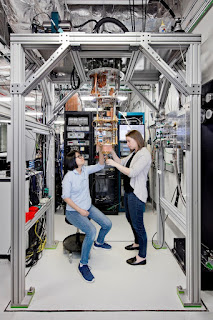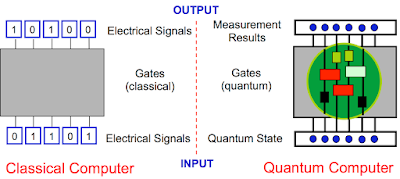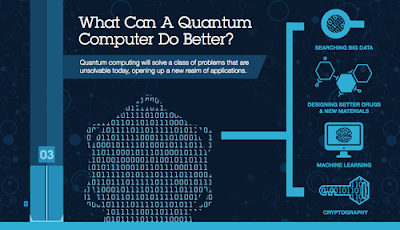Twitter Feed
AFCEA: Cyberspace at the Cross Roads
Starting December 2, 2009, the Armed Forces Communications and Electronics Association (AFCEA) will be putting on a two-day cyberspace conference. Titled “Cyberspace at the Cross Roads: The Intersection of Cyber,…
“Cloud” Shows Promise during Navy Trident Warrior
Last month as part of the Navy’s annual Trident Warrior exercise, Dataline, LLC successfully demonstrated that a standard shipboard communications infrastructure could be used to manage a commercial cloud infrastructure-as-a-service…
Government Cloud Computing Value Survey
As part of a continuing Government Cloud computing education program, Dataline, LLC has released a Government Cloud Computing Value Survey. This online resource has been designed as an aid to…
“Hyper-Standardized” Cloud Computing Environment a Plus for DISA
Henry Sienkiewcz, DISA Computer Services Technical Director, credits the cloud computing “hyper-standardized” environment for the improvement they have been able to deliver through their cloud computing initiative. During remarks at…
Army Deputy CIO Cites Army/DISA Cloud Computing Partnership
This week’s Federal Executive Forum taping highlighted collaboration between DISA and the Army on the service’s transition to cloud computing. Army Deputy Chief Information Officer Mike Krieger called it a…
Navy CIO Discusses Cloud Computing
During this week’s Federal Executive Forum taping, Navy CIO Robert Carey discussed his views on cloud computing. Stating that the NGEN and CANES (Navy Consolidated Afloat Networks and Enterprise Services)…
DoD, DHS and FBI Highlight Identity Management Interoperability
During this week’s Federal Executive Forum, key decision makers from DoD, DHS and FBI highlighted identity management interoperability as their key priority for 2010. Panelist included: Robert Mocny, Acting Director,…
EuroCloud Launches !!
Congratulations to Pierre-Jose Billotte for the successful launch of EuroCloud !! Established as a pan European network, EuroCloud are communities that represent a knowledgeable network of companies engaged local and…
Government Cloud Economics
In the The Economics of Cloud Computing, Gwen Morton and Ted Alford have published an EXCELLENT economic evaluation of the federal government’s push to cloud computing. Anyone interested in this…
Deputy CIA CIO Newest Ulitzer Author
Jill Tummler Singer, Deputy Chief Information Officer at the Central Intelligence Agency (CIA), is now a Ulitzer author. Appointed in November 2006, Ms Singer is responsible for ensuring CIA has…
- The release of a new API (Application Program Interface) for the IBM Quantum Experience that enables developers and programmers to begin building interfaces between its existing five quantum bit (qubit) cloud-based quantum computer and classical computers, without needing a deep background in quantum physics.
- The release of an upgraded simulator on the IBM Quantum Experience that can model circuits with up to 20 qubits. In the first half of 2017, IBM plans to release a full SDK (Software Development Kit) on the IBM Quantum Experience for users to build simple quantum applications and software programs.
The IBM Quantum Experience enables anyone to connect to IBM’s quantum processor via the IBM Cloud, to run algorithms and experiments, work with the individual quantum bits, and explore tutorials and simulations around what might be possible with quantum computing. Since its launch less than a year ago, about 40,000 users have run over 275,000 experiments on the IBM Quantum Experience. It has become an enablement tool for scientists in over 100 countries and, to date, 15 third-party research papers have been posted to arXiv with five published in leading journals based on experiments run on the Quantum Experience.
 The broad availability of quantum computing capability could prove to be a significant blow to current data encryption practices. In 2015 the US National Security Agency actually advised US agencies and businesses to prepare for a time when the cryptography protecting virtually all e-mail, medical and financial records, and online transactions would be rendered obsolete by quantum computing. The US National Institute for Standards and Technology (NIST) is also running a competition to spur work on post-quantum algorithms.
The broad availability of quantum computing capability could prove to be a significant blow to current data encryption practices. In 2015 the US National Security Agency actually advised US agencies and businesses to prepare for a time when the cryptography protecting virtually all e-mail, medical and financial records, and online transactions would be rendered obsolete by quantum computing. The US National Institute for Standards and Technology (NIST) is also running a competition to spur work on post-quantum algorithms. - Drug and Materials Discovery: Untangling the complexity of molecular and chemical interactions leading to the discovery of new medicines and materials;
- Supply Chain & Logistics: Finding the optimal path across global systems of systems for ultra-efficient logistics and supply chains, such as optimizing fleet operations for deliveries during the holiday season;
- Financial Services: Finding new ways to model financial data and isolating key global risk factors to make better investments;
- Artificial Intelligence: Making facets of artificial intelligence such as machine learning much more powerful when data sets can be too big such as searching images or video; or
- Cloud Security: Making cloud computing more secure by using the laws of quantum physics to enhance private data safety.
This content is being syndicated through multiple channels. The opinions expressed are solely those of the author and do not represent the views of GovCloud Network, GovCloud Network Partners or any other corporation or organization.
( Thank you. If you enjoyed this article, get free updates by email or RSS – © Copyright Kevin L. Jackson 2017)
Cloud Computing
- CPUcoin Expands CPU/GPU Power Sharing with Cudo Ventures Enterprise Network Partnership
- CPUcoin Expands CPU/GPU Power Sharing with Cudo Ventures Enterprise Network Partnership
- Route1 Announces Q2 2019 Financial Results
- CPUcoin Expands CPU/GPU Power Sharing with Cudo Ventures Enterprise Network Partnership
- ChannelAdvisor to Present at the D.A. Davidson 18th Annual Technology Conference
Cybersecurity
- Route1 Announces Q2 2019 Financial Results
- FIRST US BANCSHARES, INC. DECLARES CASH DIVIDEND
- Business Continuity Management Planning Solution Market is Expected to Grow ~ US$ 1.6 Bn by the end of 2029 - PMR
- Atos delivers Quantum-Learning-as-a-Service to Xofia to enable artificial intelligence solutions
- New Ares IoT Botnet discovered on Android OS based Set-Top Boxes




